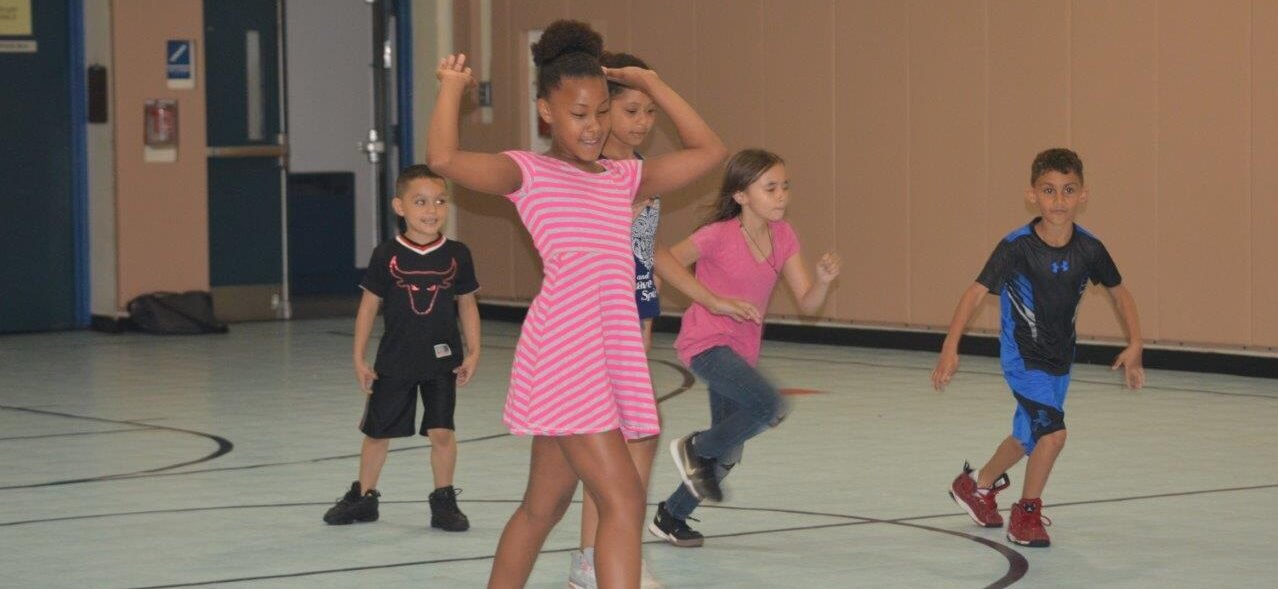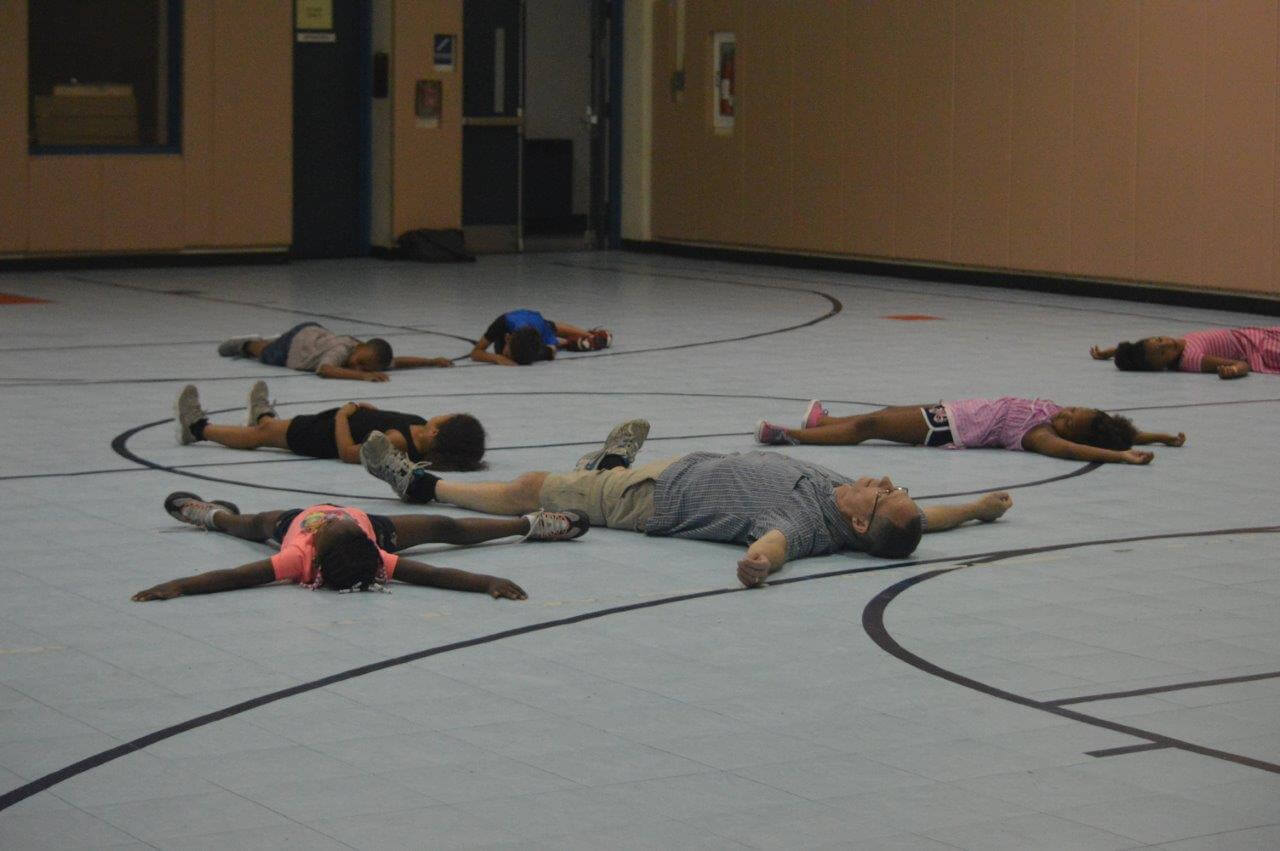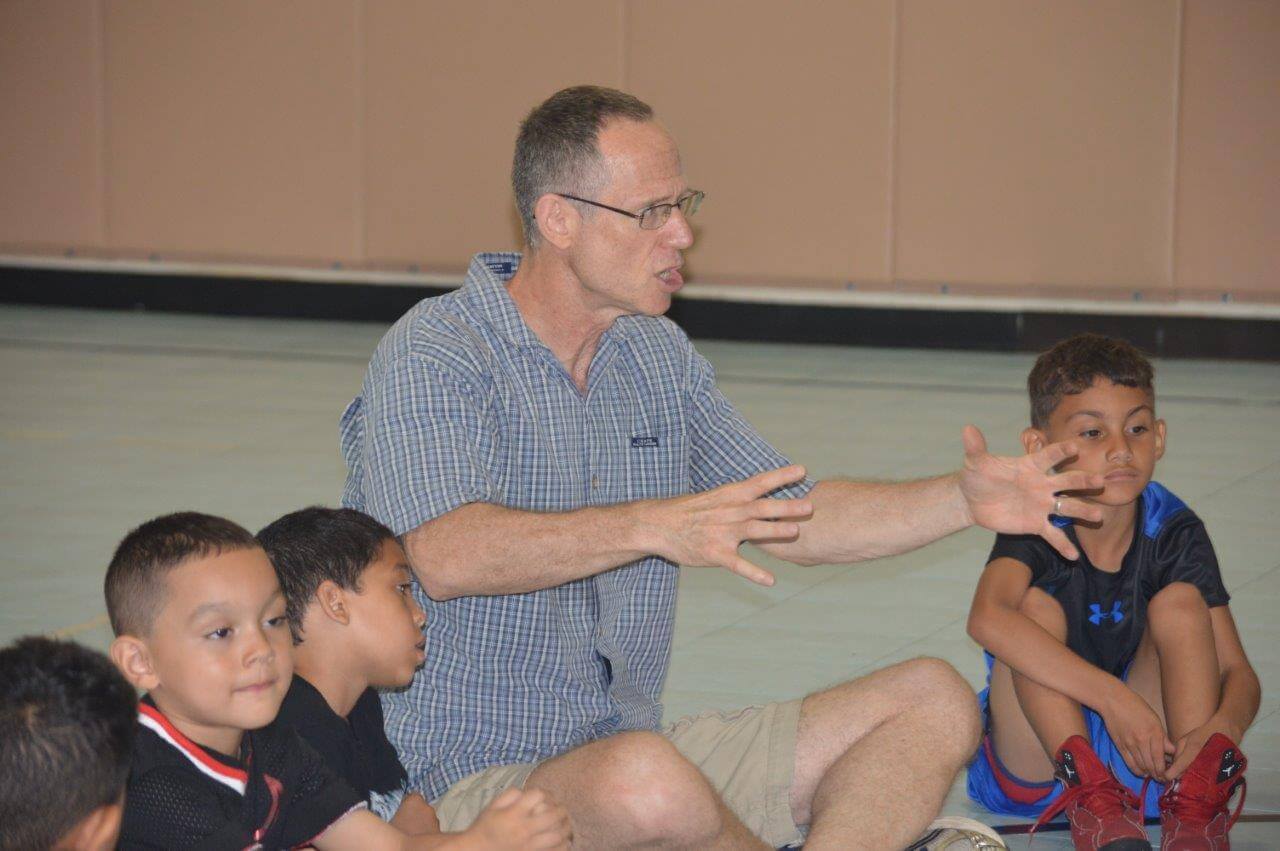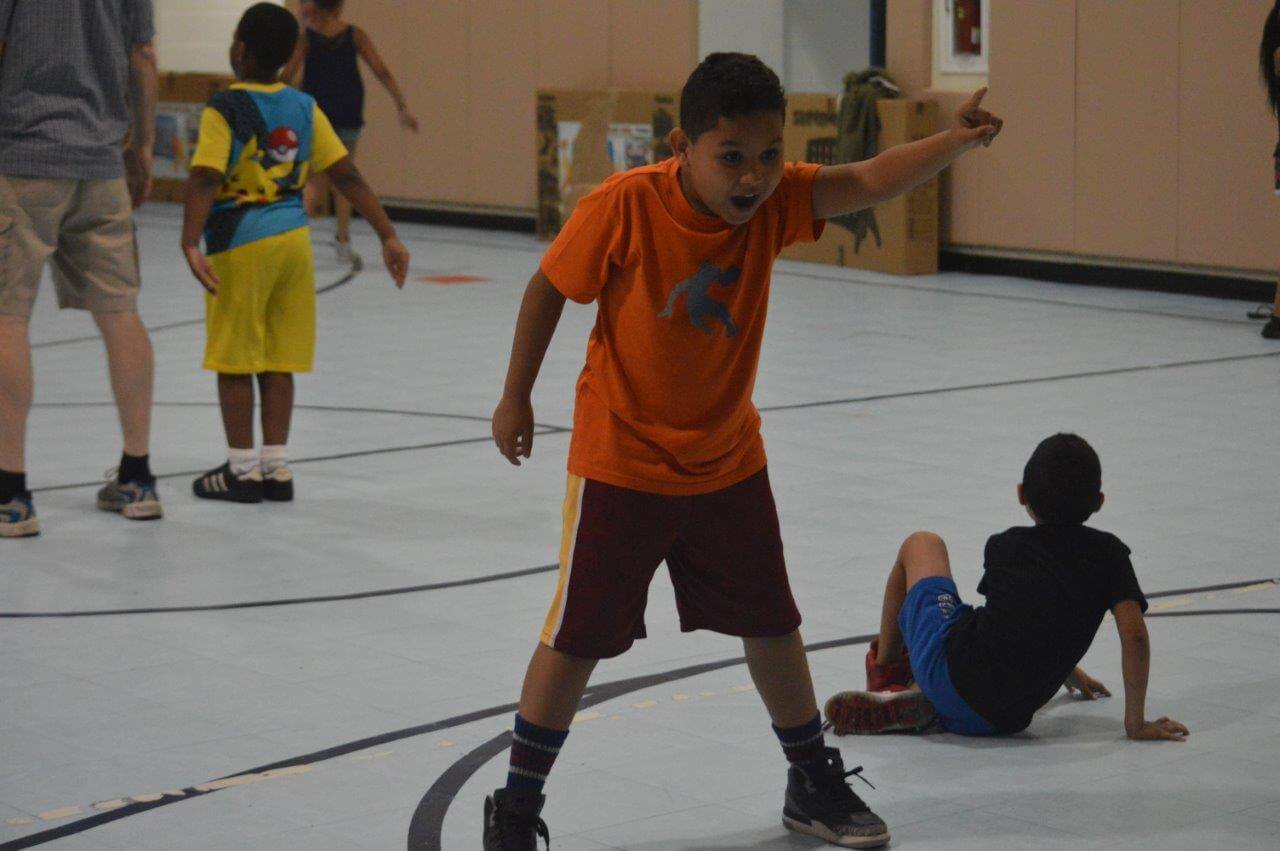Theater Arts Instill Lifelong Skills
September 4, 2018
by Shawn Deiter

Lights… camera… ACTION!
The 2018 summer season sizzled with activity for the Summer Explorers attending LVCC’s Judith Chase Early Learning Center in Allentown. Thanks to generous contributions from Crayola and other donors to the LVCC Program Enrichment Fund, the school-age children became more mindful of their actions and reactions through a theater workshop, led by Mark McKenna, theater artist-in-residence.
McKenna used the dynamics of theater and other artistic expression for the students to explore relationships, tell stories, and develop theatrical experiences. These experiences incorporated a number of concepts including conflict resolution, handling challenging situations, as well as listening and coping skills.
McKenna conducted eight weekly visits from June through August, which encouraged a number of lifelong skills. Each session consisted of warm-up activities and games to build group cohesion and collaboration; exercises and improvisations to introduce theater/social concepts and skills; and story making and performing to apply their newly learned creative skills, build community, and explore problem-solving strategies.
Listen and pay attention
Each session began with the children sitting in a circle to “check-in.” This was an exercise in listening with the purpose of creating group collaboration. Each person in the circle stated their name and, in a word or short phrase, identified how they felt at that moment. Each person completed their turn by stating, “checked-in” and made eye contact with the next person.
“This simple exercise is at the foundation of everything I teach and contains the core principles of being a creative individual, as well as a positive and supportive member of a group/community/society,” McKenna explained.
Listening—requiring patience, curiosity and generosity—was the cornerstone of this activity. Participants needed to give their full attention, no matter how the children felt about each other, and focus without comment, judgement, or interruption.
Build trust
As participants became familiar and acclimated to the exercise after multiple repetitions, they began to trust the process and each other. The group could not sustain the exercise for a full round without interruption until all participants respected and valued the exercise.
“When the kids felt heard and respected, a relationship could develop,” McKenna said. “A relationship demands a rhythm of reciprocity and a sense of mutual understanding, which this exercise promoted.”
Resolve Conflicts through Storytelling
On the first day, McKenna told the story of the Three Billy Goats Gruff, which the students then retold and acted out.
“The kids naturally transformed the characters, plot, and dialogue in a way that made more sense to them, yet kept the integrity of the story,” said McKenna.
Stories based on cultural folktales, improvisation, and real-life experiences gave the children a platform to work through challenging situations and practice positive social skills—listening, empathizing, sharing, and providing collaborative support.
“By teaching students how to use their bodies, voices, and imagination to create theater, they began to understand the power of their personal choices and how to regulate their own temperament,” explained McKenna.
Learn artistic language
The children learned to understand and use basic theater vocabulary (i.e. actor, story, character, setting, plot) to set a scene, as well as follow directions of the stage (i.e. upstage, downstage, stage right, stage left).
Build critical thinking skills
Within all the circle games, exercises, and improvisations, the children needed to respond through either acting or communicating. This required the children to stay aware and make choices to accomplish goals.
“Through the exercise or improvisation, the students learned by doing as well as by watching their peers deal with the same challenges. This dual presence - either as a doer or as a witness - gave different perspectives for the kids to reflect upon their actions and assess the effectiveness of their choices or of their peers’ decisions,” McKenna said.
Explore healthy and unhealthy relationships
In the theater games and exercises played, the students engaged as equals. Everyone experienced success and failure. McKenna structured improvisations and assignments for the children to define their roles in the creative process and performance. They explored relationships by role-playing effective and ineffective ways of interaction.
“Role-play empowered them to make choices and evaluate, self-regulate and experiment with different outcomes as equal players without risking social status. It also allowed them to learn through the experience with each other without direct instruction from adults,” McKenna explained.
Throughout the workshop, LVCC’s teachers helped the students stay on task and sometimes took part in the exercises. They acknowledged a transformation in the children by the end of the sessions.
“The workshops helped the kids cooperate and get along better,” said Allison Pierson, center director. “Kids who wouldn’t normally interact with one another were given a common ground to learn how to communicate with each other.”

Students learned different methods of controlling body movements and voice through the theater arts.
When asked what McKenna hoped the children would take with them, he responded, “I hope the children experience the joy of creative work. I hope that they recognize that when they give their full commitment to a creative endeavor, challenges and even failures may occur along the way; however, if they persevere, they'll experience the rewards of having made a meaningful impact on their environment or those around them. I hope they'll be able to better recognize and claim their feelings, to appreciate each other more and value the skills of relationship building.”

